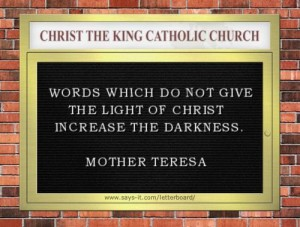Over recent weeks, as I read the headlines, I’ve been very confused by the message preached by some Christian pastors. They read the same Bible I do. How do they reach such very different conclusions from me?

I’ve been stunned by the number of headlines that report Christian ministers preaching that some people should be killed. When some of these sermons are covered by national media, it makes me wonder how much more hatred is being preached that goes unreported. In North Carolina, Kansas, Maryland, and Indiana, preachers have insisted that people should be killed for being who they were made to be. Most Americans associate religious leaders advocating that others be killed with radical Muslim groups. However, the preaching of hatred is occurring in the United States by supposedly Christian leaders and, at some level, is viewed as acceptable.
Because of the U.S. Bill of Rights that guarantees freedom of speech and freedom of religion, hate-filled messages like these are permitted to persist. The impact of these messages is clear: as the call for the death of gay, lesbian, and transgendered people becomes more pronounced, 2011 saw gay murders reach their highest number. I cannot help but wonder if many of our allies, like Canada and the United Kingdom, aren’t correct in limiting the right to free speech with laws limiting hate-speech. “In his new book, The Harm in Hate Speech, Jeremy Waldron calls attention to the fact that the U.S. is the only liberal democracy in the world without some version of hate speech regulation.”
I can’t stop the hatred. But I can use the resources available to me to draw awareness to the truth about the Christian message. The first letter of John, chapter 4, make is very clear: “God is love. Those who abide in love abide in God and God in them.” Similarly, in the gospel of John, chapter 13, on the night before his death, Jesus clearly states, “This new commandment I give to you: love one another. By this will all know that you are my disciples: by your love.” How simple is that? By what logic can someone take a set of beliefs based on love for others and call for the death of anyone?

Perhaps part of the problem is that conservative Christians have often insisted that Christianity is only “Christian” if it fits into their particular interpretation of it. From this perspective, conservative Christians choose passages like John 3:16 and use them out of context.
You know the reference to John 3:16. You’ve seen signs with “John 3:16” at sporting events, rallies, and defacing public property around the country. There are even professional athletes who inscribe the notation, “John 3:16” on their bodies and faces as a kind of testimony to their narrow minded understanding of Christianity. The text is simple: “For God so loved the world that God sent the only begotten son, so whoever would believe in him would not perish but have everlasting life.” This text is used as a call to accept Jesus as “personal Lord and savior,” a kind of spiritual practice that has only existed in Western Christianity for about 100 years. Generally, those who cling to this passage hold the position that unless people have the same religious experience they do, then they’re going to hell. Clearly, they haven’t read John 3:17: “God did not send the Son into the world to condemn it but to save the world.” Yet, there are plenty of calls for condemnation by narrowly focused religious people.
I don’t condemn individuals who preach hate or who support intolerance in any form as evil people. At heart, I affirm that each person is truly made as a reflection of God. While it may be sometimes difficult to see, there is something of God in each person. But what these so-called Christians are saying is wrong and it is fundamentally contrary to the basic teaching of Jesus of Nazareth. Preaching hatred is incompatible with the Judeo-Christian tradition. Just as the Nazi’s distortion of the Christian scriptures to justify the genocide of Jews was wrong, and just as the Ku Klux Klan’s distortion of the Christian scriptures to justify lynching Blacks was wrong, so too is today’s right wing’s distortion of Christian scriptures to call for the death of lesbian, gay, and transgendered people wrong. It is this kind of misuse and abuse of scripture that must be condemned.

Ultimately, the teachings of Jesus teach love and respect for each and every person no matter how different from us they may be. To this end, Jesus consistently demonstrated compassion and respect for every person he encountered, with the exception of one group: religious hypocrites. To quote the words of Jesus as found in Matthew 23: “They tie up heavy burdens and place them on the shoulders of others while they themselves do nothing to lift a finger.” Two thousand years later and it is clear: some things just don’t change. People can mistakenly use their religion to make life harder for others. It’s a scandal today just as it was for Jesus.

Lou,
Thank you for your insight. I think you are very tolerant and I appreciate your comments. I am gay and I do not want to have anything to do with Christians and their hate speech. I think that a majority of Christinas agree with hate speech becuase I have not heard of any promienet christian leader denounce the preaching for the hatred of the LGBT comunnity.
The Real Person!
The Real Person!
Tim:
Thanks for your comment. While there are Christian leaders who do speak out against intolerance, the media often ignores what they have to say. The hate-speech creates controversy and gets the headlines. For example, my own denomination, the United Church of Christ has advocated for marriage equity for several years. When I say that to reporters, they simply tell me that it’s old news.
Sorry Tim,
These people are not Christians because God loves everyone. Its peoples sin that he deals with and still loves us. I was saved when I was a drug addict, a drunk and a thief. Thankfully I met Christians who understood real love so please don’t hate all Christians because of the bigoted few.